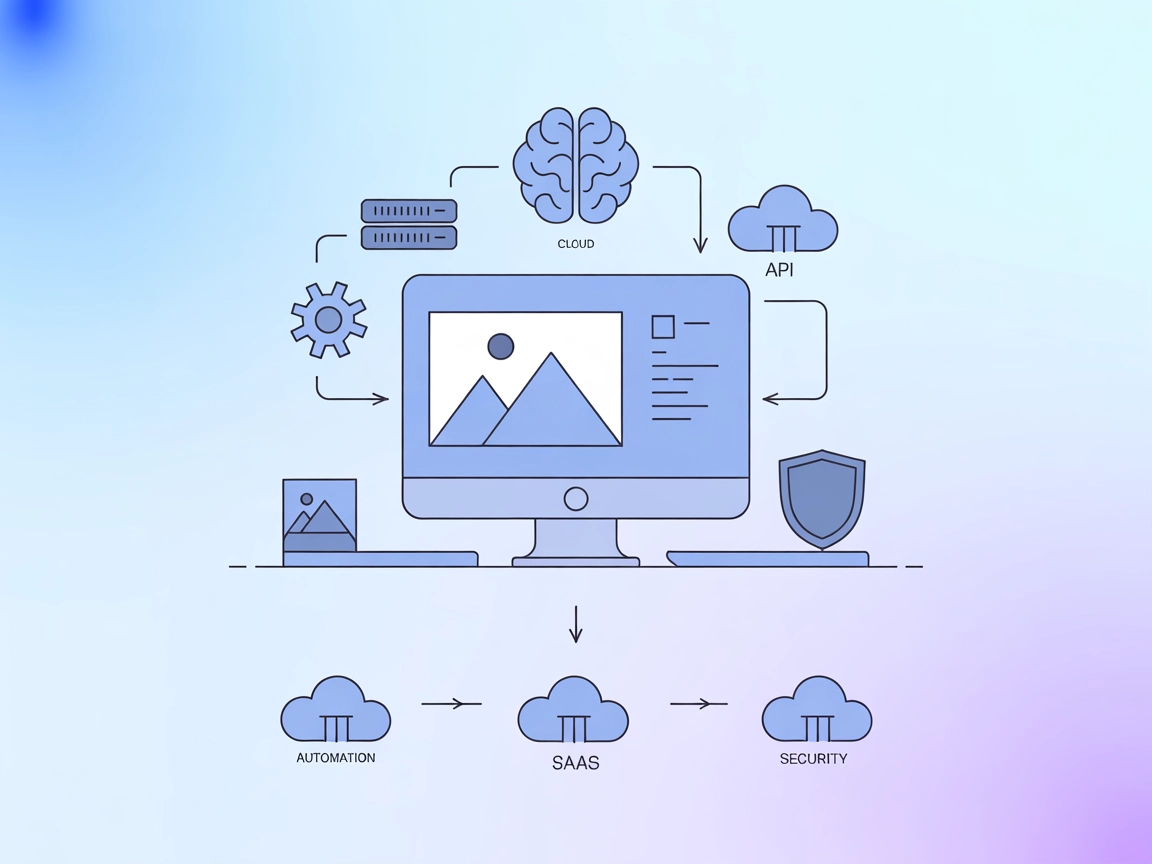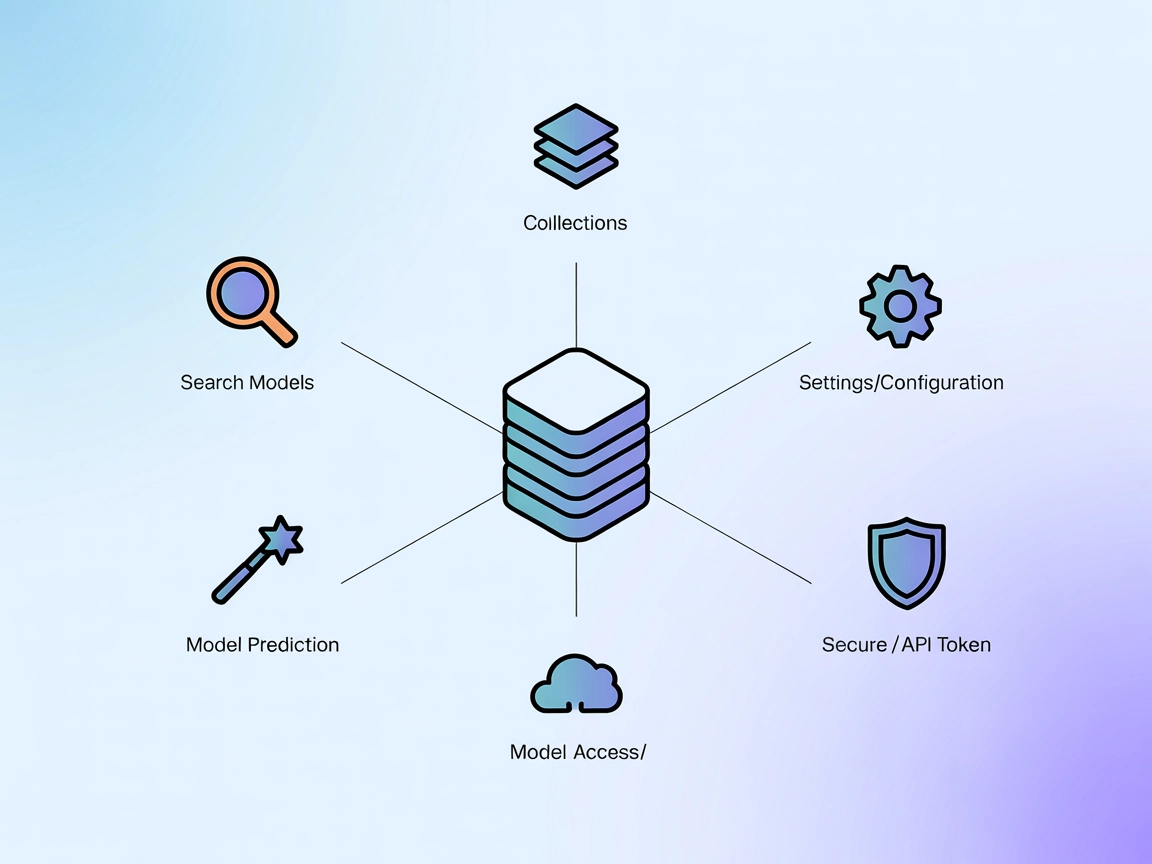
Image Generation MCP Server
The Image Generation MCP Server empowers AI assistants and applications to generate custom images on demand using the Replicate Flux model, enabling automated, ...

Integrate Replicate’s extensive AI model catalog into your FlowHunt projects. Search, browse, and run models with ease using the Replicate MCP Server connector.
FlowHunt provides an additional security layer between your internal systems and AI tools, giving you granular control over which tools are accessible from your MCP servers. MCP servers hosted in our infrastructure can be seamlessly integrated with FlowHunt's chatbot as well as popular AI platforms like ChatGPT, Claude, and various AI editors.
The Replicate MCP Server is a Model Context Protocol (MCP) server designed to provide seamless access to Replicate’s API for AI assistants and clients. By bridging the gap between AI models and Replicate’s extensive model hub, it allows users to search, browse, and interact with various machine learning models directly from their development workflows. The server supports tasks such as semantic model search, retrieving model details, running predictions, and managing collections. This empowers developers to quickly experiment with and deploy AI capabilities like image generation, text analysis, and more, all while maintaining secure access through API tokens and standardized tool interfaces.
No prompt templates are explicitly mentioned in the repository documentation or code.
No explicit MCP resources are described in the available documentation or code.
{
"mcpServers": {
"replicate": {
"command": "mcp-replicate",
"env": {
"REPLICATE_API_TOKEN": "your_token_here"
}
}
}
}
npm install -g mcp-replicate{
"mcpServers": {
"replicate": {
"command": "mcp-replicate",
"env": {
"REPLICATE_API_TOKEN": "your_token_here"
}
}
}
}
{
"mcpServers": {
"replicate": {
"command": "mcp-replicate",
"env": {
"REPLICATE_API_TOKEN": "your_token_here"
}
}
}
}
{
"mcpServers": {
"replicate": {
"command": "mcp-replicate",
"env": {
"REPLICATE_API_TOKEN": "your_token_here"
}
}
}
}
Note:
Always secure your API keys using environment variables as shown in the configuration examples above. Avoid hardcoding sensitive data in publicly accessible files.
{
"mcpServers": {
"replicate": {
"command": "mcp-replicate",
"env": {
"REPLICATE_API_TOKEN": "your_token_here"
},
"inputs": {}
}
}
}
Using MCP in FlowHunt
To integrate MCP servers into your FlowHunt workflow, start by adding the MCP component to your flow and connecting it to your AI agent:

Click on the MCP component to open the configuration panel. In the system MCP configuration section, insert your MCP server details using this JSON format:
{
"replicate": {
"transport": "streamable_http",
"url": "https://yourmcpserver.example/pathtothemcp/url"
}
}
Once configured, the AI agent is now able to use this MCP as a tool with access to all its functions and capabilities. Remember to change “replicate” to whatever the actual name of your MCP server is and replace the URL with your own MCP server URL.
| Section | Availability | Details/Notes |
|---|---|---|
| Overview | ✅ | |
| List of Prompts | ⛔ | No prompt templates mentioned in repo. |
| List of Resources | ⛔ | No explicit resources described. |
| List of Tools | ✅ | 6 tools for models and predictions. |
| Securing API Keys | ✅ | Configuration via env vars, examples provided. |
| Sampling Support (less important in evaluation) | ⛔ | No mention of sampling or roots in documentation. |
Roots support: Not specified in available documentation.
Based on the tables above, the Replicate MCP Server is well-documented for installation and tool usage, but lacks prompt templates and explicit MCP resources. Sampling and roots support are not mentioned. For developers seeking Replicate API access through MCP, it is a strong choice if your focus is on model discovery and prediction tools, but it is less feature complete on advanced MCP primitives.
| Has a LICENSE | ✅ (MIT) |
|---|---|
| Has at least one tool | ✅ |
| Number of Forks | 16 |
| Number of Stars | 72 |
Rating: 7/10
A solid, practical MCP server for Replicate with robust tooling and clear setup, but missing some advanced MCP features and documentation on prompt/resources.
The Replicate MCP Server bridges FlowHunt and Replicate's API, allowing you to search, browse, and run predictions on thousands of AI models directly from your automated workflows.
It offers semantic model search, browsing, detailed info retrieval, prediction execution, and collection management tools—making it easy to experiment with and deploy AI models.
Always use environment variables (as shown in setup examples) to store your Replicate API token. Avoid hardcoding sensitive information in public files.
Typical use cases include rapid model discovery, running AI predictions (like image or text generation), retrieving model details, and automating workflows that leverage Replicate's model hub.
No, the current documentation and code do not mention prompt templates or custom MCP resources. The focus is on tooling for model access and predictions.
Supercharge your development workflows by integrating Replicate's powerful AI models with FlowHunt. Set up in minutes and unlock advanced machine learning capabilities for your projects.

The Image Generation MCP Server empowers AI assistants and applications to generate custom images on demand using the Replicate Flux model, enabling automated, ...

The Model Context Protocol (MCP) Server bridges AI assistants with external data sources, APIs, and services, enabling streamlined integration of complex workfl...

The ModelContextProtocol (MCP) Server acts as a bridge between AI agents and external data sources, APIs, and services, enabling FlowHunt users to build context...
Cookie Consent
We use cookies to enhance your browsing experience and analyze our traffic. See our privacy policy.